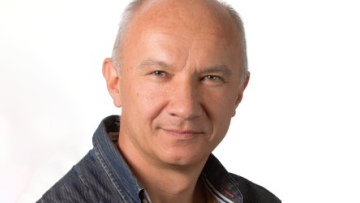Upgrade Camera system
Upgrade Camera system
15:30
Non-adversarial training of Neural SDEs with signature kernel scores
Please join us from 1500-1530 for tea and coffee outside the lecture theatre before the talk.
Abstract
Neural SDEs are continuous-time generative models for sequential data. State-of-the-art performance for irregular time series generation has been previously obtained by training these models adversarially as GANs. However, as typical for GAN architectures, training is notoriously unstable, often suffers from mode collapse, and requires specialised techniques such as weight clipping and gradient penalty to mitigate these issues. In this talk, I will introduce a novel class of scoring rules on path space based on signature kernels and use them as an objective for training Neural SDEs non-adversarially. The strict properness of such kernel scores and the consistency of the corresponding estimators, provide existence and uniqueness guarantees for the minimiser. With this formulation, evaluating the generator-discriminator pair amounts to solving a system of linear path-dependent PDEs which allows for memory-efficient adjoint-based backpropagation. Moreover, because the proposed kernel scores are well-defined for paths with values in infinite-dimensional spaces of functions, this framework can be easily extended to generate spatiotemporal data. This procedure permits conditioning on a rich variety of market conditions and significantly outperforms alternative ways of training Neural SDEs on a variety of tasks including the simulation of rough volatility models, the conditional probabilistic forecasts of real-world forex pairs where the conditioning variable is an observed past trajectory, and the mesh-free generation of limit order book dynamics.
Oxford Mathematician Artur Ekert has been awarded the Milner Award and Lecture by the Royal Society for "pioneering contributions to quantum communication and computation, which transformed the field of quantum information science from a niche academic activity into a vibrant interdisciplinary field of industrial relevance."


